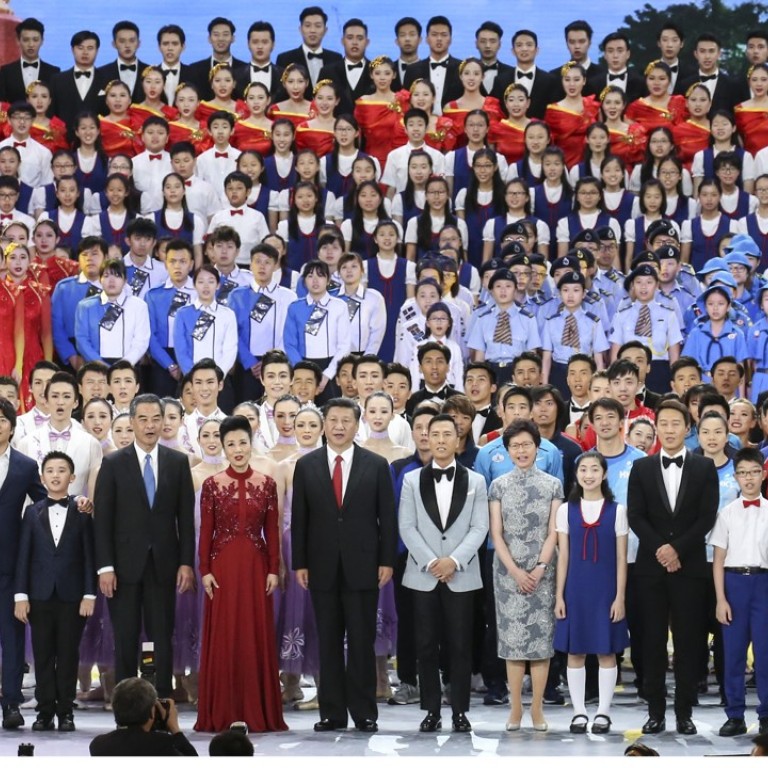
Xi Jinping’s rallying cry to Hong Kong: Believe in yourselves, your city and your country
President acknowledges city’s problems but calls for rational rather than emotional approach to solving them
President Xi Jinping has appealed to Hongkongers to believe in themselves, their city and their country, acknowledging many problems but promising support to overcome them and unwavering determination to uphold the “one country, two systems” policy.
The messages were delivered in two speeches when he met Hong Kong’s business, political and social elite on the second day of his three-day visit to join the handover celebrations and swear in a new government today.
“We have to understand the complex historical roots and international background behind Hong Kong’s many problems,” he said. “We must not generalise on the causes, nor must we respond emotionally. The problems are not frightening – the key is to find solutions.”
Xi said he could not think of “any other politically wiser” model than the current one, adding: “For Hong Kong, the question it should care about is not whether one country, two systems will change, but how to implement the principle comprehensively and accurately, and push for the city to achieve prosperous development.”
Multiple indicators of governance, such as administrative effectiveness and rule of law, were much higher than they were before Hong Kong’s return to the motherland, he said.
Asking the people to have confidence and “believe in themselves, in Hong Kong and in the country,” the president promised Beijing’s “unwavering” determination to keep the one country, two systems policy going.
While noting the nation’s “strong backing” for Hong Kong, Xi put special emphasis on Hongkongers’ own competence and wisdom in transforming a nameless fishing village into a modern metropolis.
“What is key to Hong Kong’s success … is the hard work of generations of Hong Kong compatriots.”
For the city to achieve greater success, he added, the key lay in development and the economy – he did not mention political changes or democratisation.
“Only by consolidating and enhancing [Hong Kong’s systematic] advantages can it retain and attract talent,” he said.
Democratic Party chairman Wu Chi-wai, who was invited to the banquet, noted Xi’s positivity regarding the city’s future but he was worried that Xi had only listened to one-sided views and misunderstood the true situation. “Hong Kong needs more than economic development – we need to safeguard our core values,” he said.
Lau Siu-kai, a former policy adviser who now heads a think tank , said Xi had conveyed a hardline approach despite the softer tone.
“Xi was trying to deepen Hongkongers’ sense of the nation and nationality,” Lau said. “By painting a beautiful picture of co-prosperity, Xi means that Hong Kong cannot develop in any way if it’s not connected to China.”
Additional reporting by Kimmy Chung



